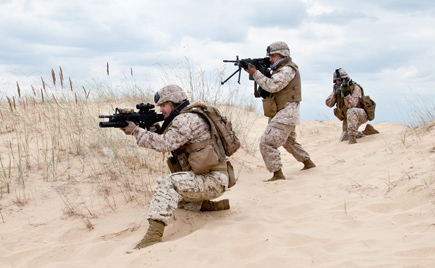Volume 2: Facing national security challenges
 Oleg Zabielin / Shutterstock
Oleg Zabielin / Shutterstock
Every president faces national security crises. They come in many forms: attacks on the homeland, foreign wars, global economic crises, nuclear proliferation, terrorism, and many others. These are the daily problems that cross the president’s desk.
Yet when such crises occur in the first months of a new administration—and they will—the presidential team is often unprepared to handle them. The new chief executive may lack experience in the job. The crises may pose unfamiliar and complex new problems. Or they may simply be unwelcome distractions from other priorities on the domestic policy agenda. For all of these reasons, foreign policy crises in the first year are an especially difficult test to navigate.
The essays presented in Volume 2 of the First Year project shine a bright light on the kinds of problems that previous presidents faced in their first year. And they offer some crucial insight and advice about how best to prepare for such crises when they come.
John Kennedy thought his first year was a disaster, and indeed the U.S. backed invasion of Cuba’s Bay of Pigs provides a classic case of a first year mistake. But as these essays show, JFK was not alone: most presidents find themselves in similar circumstances. These essays will help explain why.
New presidents tend to rely for foreign policy advice on staff from the election campaign or other party loyalists, and fail to surround themselves with the best and most experienced experts. They tend to consider on-going policies of the previous administration as flawed, rather than evaluating them on the merits. They tend to assume that political victory at the ballot box will translate into political capital overseas, and therefore adopt a robust and confrontational tone in world affairs that proves counter-productive. They often fail to see that foreign policy crises will shape their presidency, and prefer to concentrate on domestic initiatives that seem more pressing to their constituents.
By canvassing the first years of five recent presidents—Kennedy, Reagan, Bush 41, Clinton, and Bush 43—Miller Center scholars bring to light key lessons from history in these essays. And Michèle Flournoy and Philip Zelikow, two prominent foreign policy officials, translate those historical insights into recommendations for the next president.
The next president will face major threats to national security in the first twelve months in office. That is a certainty. But will he or she be prepared? These essays provide a starting point.
William I. Hitchcock is Professor of History at the University of Virginia and Director of Academic Programs at the Miller Center.